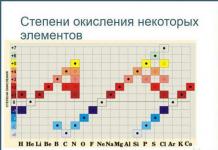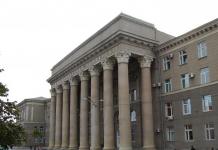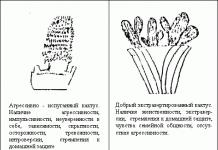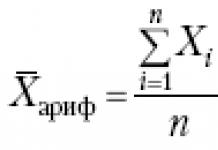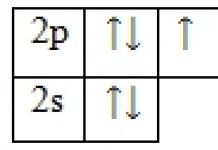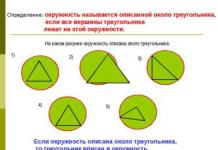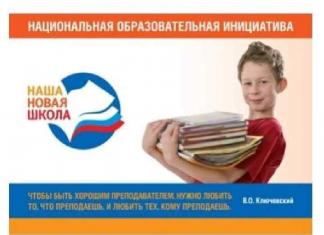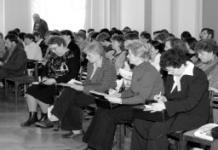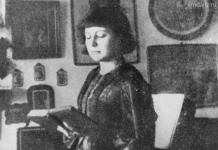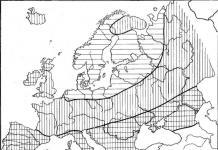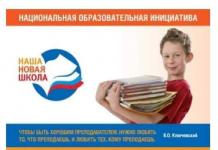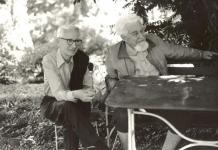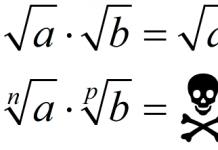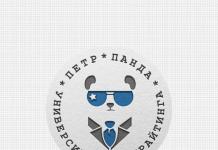In which just over 70 thousand people live. There are only a few universities and colleges operating here. One of the educational organizations is Yegoryevsk Aviation technical college. This college is suitable for those people who, from childhood, wanted to connect their destiny with aviation. It is a branch of a technical university civil aviation, which is located in Moscow (MSTU GA).
Historical information
About 70 years ago, a specialized secondary school opened its doors in Yegoryevsk educational institution, whose goal was to train aviation specialists for the country. It was from this college that the Yegoryevsk Aviation Technical College of Civil Aviation later grew.
The history of the educational institution actually began not 70 years ago, but much earlier - in the fall of 1918. What is connected with this date? At this time, the flight school was evacuated to Yegoryevsk. Previously it was located in Gatchina. A few years after the evacuation, the educational institution was transferred to Leningrad, and a military aviation school was created in Yegoryevsk. It began to train people in military aviation specialties. At the end of the 40s, a college was founded on the basis of the school. This is exactly what is in last decade last century was transformed into a college bearing its modern name.
Yegoryevsk Aviation Technical College of Civil Aviation: photo, manual and structure
The educational institution is headed by Alexander Vasilyevich Shmelkov. He is a Candidate of Technical Sciences, Honored Transport Worker Russian Federation, Member of the Public Council of the Federal Air Transport Agency. He studied at the Ryazan State Radio Engineering Institute. Alexander Vasilievich is considered a graduate of the Department of Automated Control Systems ( automated systems management). Now Shmelkov A.V. is the director of the college. He received this position in 1993.
Having examined the leadership of the college, it is worth moving on to the structure of a secondary specialized educational institution. Yegoryevsk Aviation Technical College of Civil Aviation has departments:
- law and economics of civil aviation;
- aviation ground equipment;
- those. operation of engines and aircraft.
An additional department is the correspondence department. Each of these structural units is worth considering in more detail.

Department of Law and Economics of Civil Aviation
The history of this structural unit in the college began in 1994 with the opening of the aviation management department. The need to create a branch was dictated by the country's transition from a planned to a market economy. The state began to require completely new specialists who could engage in planning and competent use of funds. For this reason, the Yegoryevsk Aviation Technical College of Civil Aviation of MSTU began to graduate managers, accountants, and lawyers.
In 2012, the structural unit changed its name. It began to be called the Department of Law and Economics of Civil Aviation. It still exists today. Graduates of the department have good general theoretical training. They know economic and legal disciplines. After completing their studies, graduates can continue their studies at Moscow State University technical university civil aviation on favorable terms, because the college is a branch.
Aviation Ground Equipment Department
This structural unit in the college has existed for a very long time. It has almost half a century of history. Its main task is to train technical personnel involved in aircraft maintenance. In its implementation, one of the main roles is played by teachers who got a job at the Yegoryevsk Aviation Technical College of Civil Aviation. The managers accepted real professionals in their field. Many of the college staff previously worked for this. This allows teachers to share important practical information with cadets.
Particular attention should be paid to the educational and technical equipment that the Yegoryevsk Aviation Technical College of Civil Aviation has. The leaders of the college formed it over the years of the existence of the structural unit. During the update, it was supplemented with new samples. Thus, the ground equipment department contains both old and new equipment. This is a definite plus, because cadets, by studying various techniques, gain deeper knowledge. It will be easier for them to work at enterprises that have both new equipment and models that have been put into operation for a long time.

Technical department operation of engines and aircraft
This structural unit began training personnel for civil aviation in 1947. This is what it is currently doing. In the department, cadet training begins with the study of theoretical information. Then practical training begins. Cadets make excursion trips to enterprises related to the field of civil aviation and undergo practical training in their specialty.
The department is aimed at quality training. That is why it has established relationships with aviation enterprises in order to obtain up-to-date information on design changes in engines and aircraft. The department periodically holds scientific conferences. Their goal is also to gain new knowledge.

Full-time education and specialties
In all of the above structures full-time department Yegoryevsk Aviation Technical College of Civil Aviation offers the following specialties:
- "Accounting and Economics." Once you get into this direction, you can become an accountant. People who come here learn how to do accounting and reporting.
- “Means of automation and mechanization (by industry).” In this area, a technician qualification is awarded. Future graduates will be involved in the operation, maintenance and repair of mechanization and automation equipment.
- “Repair of vehicles and technical equipment. service". This specialty also trains technicians. They will be engaged in the activities that are reflected in the name of the direction.
- "Those. operation of electrified and flight systems.” The assigned qualification in this area is technician. People who graduate from Yegoryevsk Aviation Technical College will work with on-board power supply systems, electrified equipment, information and measuring instruments, systems automatic control, onboard means of recording flight data.
- "Aircraft: maintenance with fuels and lubricants." In this specialty, a technician qualification is also awarded. Graduates will carry out technological operations to provide airports with aviation fuel, perform technical equipment maintenance and repair.
- "Those. operation of engines and aircraft." Assigned qualification - technician. The essence of the activity is reflected by the name of the specialty.

Extramural studies
In 1952 he introduced correspondence form training Yegoryevsk Aviation Technical College of Civil Aviation. The faculties, called departments in college, did not offer it. For distance learning created a special structural unit, which continues to exist today.
This form of training is convenient for working people. Yegoryevsk Aviation Technical College offers a dormitory for nonresident residents coming to the sessions. Absolutely all students correspondence department can use the library, equipment and computer equipment available at the educational institution.

Demand for graduates
Civil aviation is developing in Russia. That is why specialists in this area will always be in demand. Currently, college graduates are in demand, because it is no secret that this college provides deep knowledge to students.
Some of the graduates enter the university for shortened programs offered by MSTU GA. Higher education opens up even greater opportunities. After graduating from university, you can get prestigious and highly paid positions.

Yegoryevsk Aviation Technical College of Civil Aviation: reviews
Both positive and negative reviews are left about the school. Some graduates thank the college for the knowledge they received and consider the years spent here to be the best of their lives, while others write negative opinions about the educational institution, arguing that the life of cadets is similar to the life of prisoners. Such people point to the presence of low-quality food in the canteen and lack of repairs in the dormitories.
Overall, Yegoryevsk Aviation Technical College is a good educational institution. It is worth taking a closer look when making a choice educational organization to continue their studies after school and obtain a profession, because there are not many aviation institutions in our country.
license No. 0312 dated September 11, 2012
Certificate of state accreditation No. 0675 dated July 8, 2013
The history of training military pilots in Yegoryevsk, near Moscow, dates back to 1918, when folk flight courses were transferred here, called the Yegoryevsk School of Aviation for Workers and Peasants of the RSFSR. Only by the middle of the summer of 1947, the Council of Ministers of the USSR, by issuing a decree, officially consolidated the status of the institution carrying out professional education flight crew.
Since 1991, the school was transferred to an expanded program and renamed Yegoryevsk Aviation Technical College named after V.P. Chkalov, which since November 2011 has been a structural division of the Moscow State technical university civil aviation".
About the college
Over the almost century-long period of personnel training, more than 30,000 pilots of domestic aviation and about 1,000 citizens of neighboring countries have left the walls of the institution.
At the moment, cadets are trained in seven areas by cyclic commissions of the following profile:
- Design and aerodynamics of engines and aircraft;
- Navigation instruments and flight equipment;
- Maintenance of engines and aircraft structures;
- Storage and transportation of fuel and oils;
- Aviation special vehicles;
- Natural sciences and technical disciplines;
- Chemmotology;
- Legal, economic, humanitarian and linguistic disciplines;
- Physical education.
Apart from two specialties, the educational process is conducted only on a full-time basis. The duration of training upon admission on the basis of 9 classes is 46 months, after 11 classes - 34 months. In engineering areas, graduates are assigned the qualification level of technician.
Additional services
In addition, advanced training courses are conducted for employees of fuel and lubricants services:
- Aircraft technicians;
- Storekeepers;
- Laboratory assistants.
And also, emergency rescue training for civil aviation airliner crews based on the swimming pool. Payment for accommodation in a hostel is 400 rubles per month. The institution has 17 research rooms with modern simulators, highly specialized models for studying the behavior of foreign aircraft Airbus A380 and Boeing 737. The aviation technical complex, consisting of TU-154, AN-24, Yak-42, An-2, allows you to train cadets, capable of solving a wide range of problems during flight.
Form of study: Full-time, Part-time
Type of training: Paid, Free
Cost of education: 280,000 – 326,000 rubles per year
Training is based on grades 9 or 11
Courses: advanced training for employees of fuel and lubricants services
emergency rescue training for civil aviation crews
Supervising university: Moscow State Technical University of Civil Aviation
Specialties:
Technical operation of aircraft and engines Technical operation of electrified and flight navigation systems Aviation ground equipment Maintenance of aircraft with fuels and lubricants Maintenance and repair of motor transport Economics, accounting and control Law and organization of social security Aviation management
Exam subjects:
Russian language, mathematics
Vyborg Aviation Technical College of Civil Aviation is one of the longest operating educational institutions in the field of aviation in Russia. Its activity spans more than 65 years. The school is located in Vyborg and is a branch of the St. Petersburg state university civil aviation.
Previously, only future mechanical technicians studied at the college. Since 1993, here you can get a broader education in the field of operation, service and maintenance of aircraft.
Like many modern aviation schools, the Aviation Technical College of Civil Aviation in Vyborg was initially based in another city, namely in the Kaliningrad region. There, in 1949, a school of aircraft mechanics was formed, which three years later was transformed into an aviation school. Here, cadets are trained to work with MiG fighters. In 1956 educational institution changes its address to the city of Vyborg, where it is located today.
The new school building was in poor condition, so cadets and college employees actively took on its restoration. Eight years later, the reconstruction was completed, and a club for students was built. During the same period, an airfield for training cadets was built, and the range of equipment being studied was expanded.
In 1957, the school came under the direct control of the USSR Air Force. The list of vessels being studied includes the Mi-4 helicopter - for that period it was qualitatively new sample aircraft equipment. The year 1960 becomes key for the direction of the school. It is now moving on to training civil aviation technicians. The list of aircraft in operation includes Mi series aircraft and the Ka-26 helicopter. The next two decades are marked by the renewal of the school: it receives its current name, and hangars, helicopter stands and its own aviation technical base appear on the territory of the airfield. A new educational building is being built, where classrooms, laboratories, a library and gyms are located - everything that is required for the quality training of future specialists.
The school's equipment fleet is also expanding, the number of which reaches 30 units. College cadets and teachers actively participate in the life of the educational institution: they construct stands, simulators and assemble the legendary ANT-4 helicopter on their own. The efforts of students and their mentors are reflected in numerous All-Union exhibitions and competitions, where VATUGA’s works receive multiple awards.
In the 1970s, the oil production industry of the USSR in Western Siberia was actively developing, which is why the country urgently needs a large number of specialists in the aviation industry. In this regard, VATUGA is increasing the recruitment of cadets and carrying out retraining of personnel. The 1990s become a test for the entire country, and this fate befalls civil aviation as well. However, the school remains afloat, expanding the specifics of the specializations studied: now future electronics technicians, accountants and vehicle maintenance technicians are trained here.
In the absence of government funding, the college staff independently studies the Mi-8MTV helicopter and publishes a manual on its operation.

With the arrival of the new director of the school in 2006, the living conditions for cadets, as well as the educational and laboratory complex, are being updated, and the list of equipment being studied is expanding. Next year the college will become part of St. Petersburg State University of Civil Aviation as a branch.
Specialties of VATUGA The Vyborg branch of the University of Civil Aviation provides the opportunity to obtain a secondary education special education
- in the following areas:
- Helicopter technician. The duration of study is 2 years 10 months after 11th grade of school and 3 years 10 months after 9th or 10th grade.
- Technician (working with electrified and flight navigation equipment of helicopters). The training periods are the same as in the first case. Air service specialist Vehicle
. Here training lasts a year and 10 months after finishing 11 grades of school.
The main units of the equipment being studied are Mi-2, Mi-8T, Mi-8MTV helicopters. You can get education full-time on a budget or paid basis.
How to enter VATUGA
- To enter the school, the applicant must appear at the admissions committee within the specified time frame and have the following standard documents with him:
- Application for admission in original.
- Applicant's passport (both copies and originals can be submitted).
- Original or copy of school certificate.
- Photos 3*4 cm in quantity of 4 copies.
A certificate from a medical institution in the required form confirming the applicant’s suitability for study in the chosen field. Since the school is not associated with piloting, a VLEK medical commission is not required. If desired, you can provide copies of vaccination certificates, medical insurance and pension insurance certificates. They may be useful in. In the application, the applicant indicates passport details, the chosen specialty and information about his education. The desire to enroll in a paid form of education, if necessary, and the need for a hostel are also clarified.
The selection of applicants is carried out based on the average score in mathematics, physics, computer science and English language. If one of the subjects is missing from the report card, its score is counted as zero. Applicants who are not enrolled on a budget can try to enroll on a paid basis. If there is a shortage, you can get into the school until December 1 of the current year. Persons with disabilities and disabled people, provided that their health condition allows them to study at this college. Foreign citizens can also apply here.

Cost of education
School tuition is paid every semester. The amount depends not only on the specialty, but also on whether the legal entity or individual pays for the studies, as well as on the citizenship of the cadet. For residents of the CIS and non-CIS countries, the cost of training will be large amounts in comparison with citizens of the Russian Federation. Legal entities also pay more.
The total cost of one course can range from 39,000 rubles to 57,500 rubles.
Conditions for studying at VATUGA
Today, the Vyborg Technical Aviation School of Civil Aviation boasts more than 15,000 graduates and 1,500 personnel who have undergone retraining within its walls since 1960. The training of cadets is based on a combination of educational program theoretical and practical blocks. To master the theory, there is an educational department, where specialized departments are located for each of the school’s specialties.
The mechanical department studies the specifics of operating aircraft and engines. Here students are trained in general humanitarian disciplines, economics and social sciences, study technical specialties in depth and engage in physical culture. To teach and control the assimilation of material, cycle commissions have been created at the school - analogues of departments.
The department dedicated to the study of aviation and radio-electronic equipment was created in 1993. Here cadets study the same block of general disciplines and specialized subjects. Cadets studying at the expense of the budget are fully supported by the college: they are given a uniform, food and a place in a dormitory, as well as scholarships. The technical and economic division of VATUGA trains future vehicle technicians and accountants-economists. Here you can also choose a correspondence form of study, but enrollment is not made every year.
Practical classes take place in workshops and at the aviation technical base. Cadets learn how to repair helicopters, inspect them, install and dismantle equipment, etc. Students also learn the specifics of operating equipment and its maintenance. The college has simulators for practicing the necessary skills; there are also laboratories, stands and samples of equipment. As mentioned earlier, a considerable part of the accumulated objects are the results of the efforts of previous generations of students and teachers.

Training base
Prospects for graduates of the Vyborg Aviation School
The last 4 months of cadets’ training are devoted to internships at specialized enterprises. After passing the final exams, they receive a diploma of secondary specialized education in the chosen specialty. Cadets who achieve high academic performance can enter the engineering or command faculty of St. Petersburg State University of Civil Aviation. In addition, you can start professional activity. Airline companies annually send applications to the school, where they indicate the number of vacant places in the required categories. Graduates can only get a job on a voluntary basis.
The knowledge gained at the school is enough to, after the necessary training, become a member of a helicopter crew or engage in repair and maintenance of any type of aircraft.
Sports, leisure and life at the Vyborg Technical College of Civil Aviation
Sports activities are given great attention in all educational institutions. Its importance is especially relevant in the training and development of aviation school cadets, because working with aircraft requires endurance, strength and good physical fitness. In VATUGA, for physical education, there are several gyms, a stadium and a shooting range, where shooting championships are regularly held.
For independent work and preparing homework, cadets have access to the library of the school where the reading room and there is Internet access. So students can study not only paper, but also electronic textbooks and manuals, as well as specialized Internet resources. Mass events are held in the club, where 400 people can sit simultaneously. There are clubs and sections based on interests.
Accommodation and study of cadets are key areas in the modernization of the school. Living conditions in the dormitory and canteen are being improved, and the buildings are being renovated. Laboratory equipment is constantly being improved, and the prospect of expanding the model range of the equipment being studied is also being considered.

Celebrating the 65th anniversary of the school
Educational work
The learning process is inextricably linked with the education of future graduates of any age. Its importance lies in the formation of a correct idea of the specialty, mastering the principles professional ethics. Cadets must understand how important and responsible their work will be, love their profession and strive to improve themselves and learn throughout their lives.
So that the above points do not remain just words, teachers and staff of the school in Vyborg are carrying out a set of measures to educational work with students. First of all, they contact the parents of the cadets, which gives positive results in their studies and behavior. Education of students includes incentives and, in certain cases, punishment.
Particular attention is paid to instilling patriotism and team spirit among cadets. For this purpose, meetings with veterans are organized. Olympiads, excursions, competitions, and meetings with students from other educational institutions are regularly held. This makes it possible to graduate from the walls of the school not only competent workers, but also a comprehensively developed, disciplined personality in the person of each of them.

Graduations
Contacts of the educational institution
The school has its own website http://www.vatuga.ru/. Here you can find structured information about the college, conditions of admission and training, famous alumni institution and its history. In addition, groups dedicated to VATUGA can be found on all popular social networks.
In contact with
One of oldest establishments The Russian Federation, which produces highly professional craftsmen who are well versed in the basics of civil aviation, is the Yegoryevsk Aviation technical school civil aviation. The history of its development began as a public flight school back in 1918. Over the course of 6 years, the school has trained world-famous pilots:
- Chkalov and Shestakov;
- Stepanchenko and Yumasheva;
- Ptukhin and Turzhansky, as well as many experienced aircraft designers.
At the end of 1924, by decision of the USSR government, they decided to relocate the school to the northern capital of the country - to the city of Leningrad. And in an institution near Moscow they began to train cadets in aviation and military specialties. The next order of the USSR government, issued in 1940, contributed to the creation of 2 aviation squadrons of the Civil Air Fleet. Since the institution produced civil aviation specialists, it was decided to rename the school the Yegoryevsk Flight School.
Taking into account the need for highly qualified specialists who thoroughly understand air transport, in the early 90s of the last century the school management decided to train future specialists in an extended and in-depth training program. After the decision was made, the school received a new name - Yegoryevsk Aviation Technical College of Civil Aviation.
Currently, the educational institution, which has been headed by Shmelkov since 1993, warmly welcomes everyone who wants to master the specialty of civil aviation.
The flight school has excellently equipped training facilities covering a total area of 1,162 km. It contains the following:
- flight simulators that help students study the design of various aircraft in more detail;
- 17 specially equipped laboratories;
- computer classrooms;
- classrooms for training, which have both stands and the necessary technical equipment;
- assembly and sports hall.
Students can also free time visit a real sports complex, which includes 2 gyms, a stadium, a swimming pool and a shooting range. The college has at its disposal an aviation technical base for training, equipped with a decent-sized hangar with an area of more than 2000 square meters. m.
The cadets acquire practical skills at the school airfield, using the following aircraft for training flights:
- Tu-154;
- An-24;
- Yak-42;
- An-2.
While mastering the profession, cadets visit both a fuel and lubricants testing site and special production workshops. The canteen operating at the educational institution is designed for 1,200 seats, and the cozy rooms of the hostel can accommodate 1,260 nonresident students.
Many college teachers were nominated for awards for their fruitful and long-term work. Throughout its history, the educational institution has produced more than 4 thousand highly professional masters who thoroughly understand the basics of civil engineering.
Graduates who left work in the field of civil aviation both in the Russian Federation and in foreign countries. Among the most famous are:
- Panyukova B.E.;
- Mamicheva S.P.;
- Zubkova B.V. and many other famous GA figures.
More than 50 graduates of the educational institution were included by name in the encyclopedic honorary book called “XX Century. Civil Aviation of the Russian Federation in Persons".

College classes
Information for applicants
As soon as the former student leaves the threshold of the educational institution, he has to decide very important question- choice future profession. An error in this matter is unacceptable, since it is correct decision in the near future will determine the lives of young people.
If you are interested in a specialty related to civil aviation, it would be useful to visit the official website of the Yegoryevsk College of Civil Aviation http://www.eatkga.ru. By visiting the website, potential applicants will be able to learn in more detail both about the history of the development of the educational institution and about the entrance requirements.
As analytical studies show, the aviation industry in our country is developing rapidly, so the demand for professional young specialists has always been and will continue to increase. It is these graduates who leave the Yegoryevsk Flight School, which, among other things, is under state social protection. This means that the cadets are provided with both free food and uniforms, as well as education under a free social system.
Having chosen the Yegoryevsk Aviation Technical School of Civil Aviation to master the profession, applicants will need to fill out a personal questionnaire on the institution’s website, entering the necessary data in a special form so that a close contact relationship is established between the future cadet and the management of the educational institution.

Home page of the official website of Yegoryevsk College
Admission rules
The world-famous College of Civil Aviation accepts both domestic graduates of the 9th and 11th grades, as well as foreign citizens. After completing 9 grades, undergoing training in full-time over the course of 3 years and 10 months, cadets can master the following specialties:
- Operation of aircraft and engines.
- A technician who supervises the maintenance process of aircraft using both fuels and lubricants.
- A technician servicing navigation and flight systems.
Training for graduates who have completed 11 grades in the following specialties lasts for 2 years and 10 months:
- A technician who monitors the technical serviceability of engines and aircraft.
- A technical specialist who monitors the operation of aircraft and the use of fuel and lubricants.
- A specialist who understands the operation of navigation and flight systems.
For applicants who have a high school diploma general education Those who have chosen the correspondence course, the learning process in the above-mentioned specialties lasts for 3 years and 10 months. Having submitted the necessary documents for admission, free education applicants will be able to receive in accordance with current legislation if the applicant receives education of this level for the first time.
Documentation for admission
To study full-time, applicants must submit the necessary documentation no later than August 15, and acceptance of documents begins on the 20th of June.
The deadline for submitting documentation for the absentee form is extended until the end of September.
The official website of the Yegoryevsk College of Civil Aviation will help you obtain more detailed information on this issue. Upon admission, future cadets must bring with them the following documentation:
- a document confirming both identity and citizenship, in the original and photocopy;
- original and photocopy of a document confirming both education and qualifications, if any;
- photographs in size 3x4 6 pieces.
In addition to the above documentation, applicants must write an application addressed to the head of the college for admission to study in Russian, correct language. The application shall indicate the following information:
- full name of the applicant;
- Date and place of birth;
- data from the identity document, as well as information about who issued the supporting document;
- what kind of graduation diploma you have on hand;
- what specialty the applicant would like to master upon graduation from the educational institution, and in what form.
The application must also indicate whether the future cadet is interested in the dormitory. Applicants can bring documentation to the admissions committee in person, or send it electronically to the institution’s email address. Address Email The college is also listed on the official website, where enrollment data is posted.
It is possible to find out exactly whether an applicant has entered the Yegoryevsk Flight School after the deadline for submitting documents, which we previously reviewed, has expired. If the number of people wishing to receive education under the social budget program exceeds the number of specified places, first of all those persons who have more than high scores in the following subjects:
- Russian language;
- algebra and geometry;
- foreign language and physics.
If there are still free places after enrollment, the process of accepting documents will be extended until December.
Enrollment of foreigners in college
When enrolling foreigners in the Yegoryevsk Aviation Technical College of Civil Aviation, a publicly available basis and admission rules are used:
- applicants submit documents by August 15, starting June 20;
- the application for admission is written in Russian;
- a document confirming the citizenship and identity of the applicant is submitted both in the original and in photocopies;
- a diploma of education is also submitted in two copies;
- If foreign citizen stays in Russia on an entry visa, you must submit a copy of the permitting visa to the college;
- photographs in size 3x4 in the amount of 8 pieces.
The main condition for foreigners wishing to undergo training at the Yegoryevsk Flight School is knowledge of the Russian language, and in such a volume that will help them obtain the necessary skills for the main training program. To confirm this fact, a foreign citizen must add to the above documents a certificate confirming the development and proficiency of the Russian language.
The Yegoryevsk Aviation Technical School of Civil Aviation is truly the most popular and best among the numerous aviation institutions operating in the Russian Federation. And this fact is confirmed by the rapidly increasing number of people wishing to obtain a civil aviation profession in this institution.
In contact with
| Egorievsk Aviation Technical College named after V.P. Chkalov - branch of MSTU GA (EATK GA named after V.P. Chkalov) | |
| Yegoryevsk Aviation Technical College | |
| International name | Egorievskay Technical College |
|---|---|
| Former names | Yegoryevsk Aviation Technical College |
| Year of foundation |
- summer school, c - aviation technical college |
| Type | State |
| Location | Yegoryevsk |
| Address | Egoryevsk, Vladimirskaya st., 2 |
| Website | Official website of college |
Yegoryevsk Aviation Technical College named after V. P. Chkalov- one of the oldest educational institutions, a branch of MSTU that trains specialists for civil aviation.
Encyclopedic YouTube
1 / 2
Yegoryevsk Aviation Technical College named after V.P. Chkalov - Class of 2014
College Anthem 2012
Subtitles
Story
As a secondary vocational educational institution, the college was established by Resolution of the Council of Ministers of the USSR dated June 27, 1947 No. 2243, but the training of aviation specialists in Yegoryevsk has been carried out since the fall of 1918, when the People's Socialist Flight School was relocated to this city near Moscow from Gatchina , later renamed the Yegoryevsk School of Aviation of the Workers' and Peasants' Air Fleet of the RSFSR. From 1919 to 1924 famous Soviet test pilots V.P. Chkalov, S.A. Shestakov, V.A. Yumashev, V.A. Stepanchenok and others studied here, as well as Air Marshal E.I. Ptukhin, aviation generals A.A. Turzhansky , P. Kh. Mezheraup, aviation designer V. K. Gribovsky.
Autumn 1918. The national socialist flight school was evacuated to Yegoryevsk from the city of Gatchina.
College leaders
- Grekhnev A. T. from 1947 to 1952,
- Vanchikov G. G. from 1952 to 1969,
- Kuznetsov A. N. from 1969 to 1970,
- Khaustov I.G. from 1970 to 1993
From 1993 to the present day, the college is headed by A. V. Shmelkov.
Departments and specialties
Technical operation of aircraft and engines
It is a structural unit of the Yegoryevsk Aviation Technical College, providing training for civil aviation in specialty 162105 since 1947 and in specialty 162108 since 1996.
The department provides training in the following specialties:
- 162105 – “Technical operation of aircraft and engines”
- 162108 – “Technical operation of electrified and flight navigation systems”
- The first two years of elevated level cadets receive fundamental theoretical training. In senior courses, they acquire in-depth knowledge about specific types of aircraft (Tu-154, Tu-204, Il-96, Il-76, Yak-42, An-24, An-26, etc.) and master special skills for their maintenance . Deep theoretical and practical training of graduates allows them to work at aviation enterprises in all regions of Russia and the CIS countries. Most graduates work in Sheremetyevo, Domodedovo, Vnukovo, etc. Department:
- sends cadets to aviation enterprises to undergo internships in their specialty and resolve employment issues;
- organizes the work of the zonal admissions committee the Academy of Civil Aviation, which recruits college graduates to continue their studies at the command department of the Academy;
- maintains close contact with aviation enterprises, receiving the necessary information about modifications and design changes to aircraft and engines, as well as about the needs of aviation enterprises for specialists;
- organizes the study of special aviation terminology in English;
organizes additional classes for 1st year cadets who want to improve their level in mathematics, physics, chemistry and other subjects; - holds international scientific conferences dedicated to modern problems aircraft operation and flight safety;
maintains close ties with the family of the outstanding test pilot Hero Soviet Union V.P. Chkalov, who studied at the Yegoryevsk Aviation School in 1921-23;
- provides the opportunity to improve knowledge in technical creativity circles, conducts competitions for cadet work;
- is an active participant in Olympiads, sports competitions, festivals, cultural events held in Russia;
invites outstanding representatives of science and production from Russia and foreign countries to give lectures to the cadets; - organizes excursions to civil aviation enterprises, museums and theaters in Moscow and the Moscow region.
Aviation ground equipment
Is one of the oldest structural divisions Yegoryevsk Aviation Technical College. This department trains aviation specialists in the following specialties: Maintenance of aircraft with fuels and lubricants (162112) and Maintenance and repair of motor vehicles (190631).
Training is carried out on the basis of complete secondary and incomplete secondary education. The duration of training on the basis of incomplete secondary education is 3 years 10 months, complete secondary education is 2 years 10 months.
Training of personnel for civil aviation in specialty 162112 dates back to 1949, and 190631 since 1994, while the college is one of the few in Russia that produces qualified technicians in these specialties.
In preparation for work in their specialty, cadets acquire theoretical and professional knowledge in their chosen specialty, master the skills necessary for further production activities at civil aviation airports.
In-depth theoretical and practical training of graduates allows them to work at civil aviation enterprises in all regions of Russia and the CIS countries, at automobile enterprises, and fuel supply facilities in other sectors of the national economy.
In these specialties, the main emphasis is on technical sciences.
Aviation management
In 1994, the Air Transport Management department was opened at the Yegoryevsk Aviation Technical College of Civil Aviation. At this time, the state was moving towards a market economy, which, in turn, created a need for managers of a new quality. The fact is that Soviet universities and technical schools trained competent engineers and technicians, but in a planned economy, specialists were not taught the basics of management, marketing, and business planning, so the department was tasked with training specialists of a new quality. As the market economy develops, everything higher value began to have commodity-money relations. Enterprises and organizations face problems in properly managing in cash, create an optimal balance.
For this purpose, good professional accountants are needed, for this reason, since 1999, the department has been moving towards training accountants. Market economy and state regulation is, first of all, a powerful legal framework, the dictatorship of the law, therefore, since 1999, the specialty “Jurisprudence” has appeared, meeting the state’s need for lawyers.
Today the department provides training in the following specialties:
080110 - "Economics, accounting and control 030912 - "Law and organization of social security.
In these specialties, the main emphasis is on the humanities.
Since 2014, admission to the Aviation Management department has not been carried out.
Branches
- send cadets to aviation enterprises to undergo internships in their specialty and resolve employment issues;
- organize the work of the zonal admissions committee of the Academy of Civil Aviation, which recruits college graduates to *continue their studies at the command department of the Academy;
- maintain close contact with aviation enterprises, receiving the necessary information about modifications and design changes to aircraft and engines, as well as about the needs of aviation enterprises for specialists;
- organize the study of special aviation terminology in English;
- organize additional classes for 1st year cadets who want to improve their level in mathematics, physics, chemistry and other subjects;
EATK GA - 65 years or 94?
In 2012, the Yegoryevsk Aviation Technical College named after V.P. Chkalov turned 65 years old. This anniversary is celebrated by the college in connection with I.V. Stalin’s decree of June 27, 1947 “to reorganize the Yegoryevsk Civil Air Fleet School of Initial Training Pilots into the Yegoryevsk Civil Air Fleet Aviation Technical School for the training of aviation technicians...”.
However, the history of EATK GA began long before 1947.
EATK GA - continuation of the Gatchina Aviation military school Tsarist Russia, which in July-September 1918, during the offensive German troops to Petrograd, was relocated to Yegoryevsk, and already on October 9, 1918, the educational institution received the name Yegoryevsk Aviation School. That is why it would be more appropriate to consider the birthday of Yegoryev College October 9, 1918.
The director of the Egorkin School, A. V. Shmelkov, addressed college graduates, honored guests and the entire aviation community with such a proposal from the stage of the Konin Palace of Culture. His initiative received warm approval from all those present in the hall, and now it is quite possible to assume that next year the Yegoryevsk Aviation Technical College named after V.P. Chkalov will celebrate the 95th anniversary of its foundation.
College today
Currently, the educational material and technical base of the college has educational premises with a total area of 1162 thousand square meters. m.,
which includes simulators for studying Western-made aircraft
BOEING and Airbus; 17 laboratories equipped with furniture and modern laboratory equipment; 7 computer classes, 22 classrooms equipped with specialized stands and technical training tools; 24 classrooms equipped with furniture and visual aids;
methodological office; Assembly Hall; sports complex with two gyms and an athletic gymnastics hall, a stadium, a shooting range and a swimming pool.
The college has an aviation technical complex, which includes: an aviation technical training base with a hangar with an area of about 2000 sq.m. and a training airfield with aviation equipment
(two Tu-154 aircraft, four An-24 aircraft, one Yak-42 aircraft, two An-2 aircraft, all sets of ground equipment); training ground fuels and lubricants; training ground for special transport and airfield mechanization; educational production workshops including metalworking, turning, welding, galvanizing shops, several classrooms and offices.
The college has a canteen with catering halls for 1200 seats (including 70 seats - a hall for permanent staff).
The college dormitories according to the project are designed for 1260 places.
Medical support for students and permanent staff is organized by the outpatient clinic, which includes a hospital with 36 beds, auxiliary rooms (dental, procedural, physiotherapy, etc.) and a laboratory.
The development of the material and technical base of the college was facilitated primarily by the Ministry of Civil Aviation (now the Federal Air Transport Agency), the base aviation enterprises of the Moscow air hub and, of course, the initiative of the college employees, from directors and their deputies to teachers, average technical staff and workers.
Since 1995, traditionally once every two years in May-June, they are held on the basis of the college together with MSTU GA, MVTU im. Bauman, the Academy of Civil Aviation, and other universities, international scientific and technical conferences (Chkalov Readings) “Engineering and physical problems of aviation and space technology » in which academicians participate international academies
, doctors and candidates of science, teachers. Collections of report abstracts are published based on conference materials. Currently Teaching Staff The college mostly has a teaching experience of more than 20 years, that is, they are experienced workers who have extensive experience working in the conditions of the Aviation Technical College of Civil Aviation. By special disciplines most effective method
training is training using aviation equipment and simulators. All technical rooms are equipped with mock-ups and mounting panels with units of the aircraft and other aircraft being studied.
At the training ATB, students consolidate their acquired knowledge on real aviation equipment in conditions close to the operational enterprise. Many college employees were awarded for their long-term and fruitful work. state awards
and honorary titles.
Over the entire period of existence of the Yegoryevsk Aviation Technical College, more than 30,000 civil aviation specialists and more than 1,000 foreign citizens have graduated.
Famous Alumni
Valery Pavlovich Chkalov (graduated in 1922) - Soviet test pilot, brigade commander, Hero of the Soviet Union. The commander of the aircraft crew that made the first non-stop flight across the North Pole from Moscow to Vancouver (Washington State, USA) in 1937.
Svetogorov Alexander Pavlovich (graduated in 1923) - participant in the rescue of the crew of the Chelyuskin steamship.
Panyukov Boris Egorovich (graduated in 1950) - former minister civil aviation of the USSR (1990-1991). Honored Transport Worker of the Russian Federation. Made a significant contribution to the development of civil aviation, equipping the industry with new aircraft, expanding international cooperation in the field of aviation. During the transition of the industry to new economic conditions, he actively introduced progressive forms of production and the organization of joint aviation enterprises. Awarded the Order October revolution, two Orders of the Red Banner of Labor, medals.
Mamichev Sergey Petrovich (graduated in 1952) - former Deputy Minister of Civil Aviation of the USSR (1979-1981). He made a significant contribution to the selection and placement of industry management personnel, their training on the basis of the Moscow Institute of Civil Aviation Engineers. He was awarded two Orders of the Red Banner of Labor, medals, and the “Excellence in Aeroflot” badge.
Alexander Semenovich Golovchansky (graduated in 1966) - worked as the head of the State Enterprise "Central Publishing House "Air Transport". Honored Transport Worker of the Russian Federation, Honorary Transport Worker of Russia. For many years he worked at civil aviation enterprises, and since 1977, the head of Redizdat Ministry of Civil Aviation and a member of the editorial board of the publishing house of the newspaper "Air Transport" and the magazine "Civil Aviation". He was awarded the badges "Excellence in Aeroflot" and "Excellence in Air Transport".
Samorukov Vladimir Dmitrievich (graduated in 1952) - candidate economic sciences. He worked as the head of the Foreign Relations Department of the USSR MGA, and the head of the Commercial Directorate of the USSR MGA. He headed a number of regional and general representative offices of Aeroflot in Europe and America. Active researcher of the history of the development of international air services. Author of the book “International Air Communications of the USSR.” He was awarded the Order of the Red Banner of Labor, the Order of Friendship of Peoples, the Badge of Honor, many medals and the “Excellent Worker of Aeroflot” badge.
Zubkov Boris Vasilyevich (1960) - Doctor of Technical Sciences, professor, corresponding member of the Academy of Aviation and Aeronautics Sciences, academician of the Russian Academy. Dean of the Faculty of Mechanics and Head of the Department of Flight Safety and Life Sciences of the Moscow State Technical University of Civil Aviation. Direction scientific activity- study of problems of aviation technical support for the flight safety of civil aviation aircraft, standardization and preservation of airworthiness. Author over 100 scientific works, three scientific monographs, a textbook and nine teaching aids. Awarded the “Excellence in Aeroflot” and “Excellence in Aeroflot” badges high school", medals.
Shishman Georgy Markovich (graduated in 1955) - long time worked as general director of the Sheremetyevo fueling complex. Honored Transport Worker of the Russian Federation, headed the department of fuels and lubricants of the Central Directorate of International Air Services of the Civil Aviation. He was awarded the Order of the Badge of Honor, medals, and the badge “Excellence in Aeroflot”.



